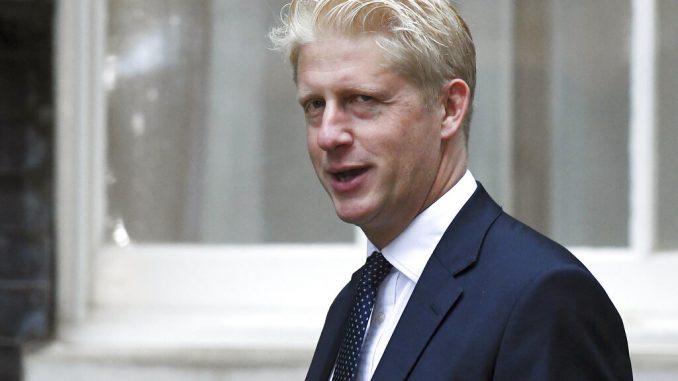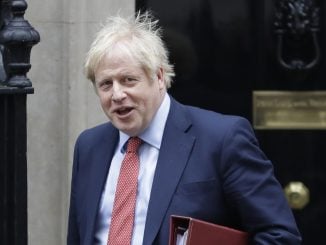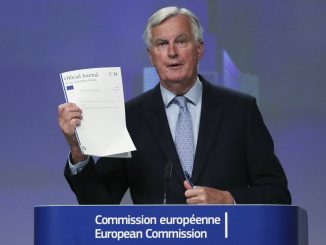
LONDON — British Prime Minister Boris Johnson named 36 new members to Parliament’s unelected House of Lords on Friday, including his brother, several prominent Brexit supporters and a Russian-born newspaper owner whose father was a KGB agent.
The list of new peers also includes Brexit-backing former lawmakers and ex-cricket star Ian Botham, a vocal proponent of leaving the European Union.
Former Treasury chiefs Ken Clarke and Philip Hammond, who both opposed Brexit, were also appointed to the Lords. So was Evgeny Lebedev, owner of the Independent and Evening Standard newspapers. His father, Russian oligarch Alexander Lebedev, once worked for the KGB.
Former Scottish Conservative leader Ruth Davidson is on the list, along with Johnson’s chief of staff Eddie Lister and the prime minister’s anti-Brexit brother Jo Johnson, who quit the government last year in opposition to its policies.
Most of the appointees are allied with Johnson’s governing Conservative Party, though the list also includes several former opposition Labour Party lawmakers who supported Brexit, Britain historic departure from the European Union.
A notable omission is former House of Commons Speaker John Bercow. It’s customary for ex-speakers to be appointed to the Lords, but Bercow infuriated the Conservative government by aiding lawmakers’ efforts to change the course of Brexit.
The new members will be given aristocratic titles — baron or baroness — and will join almost 800 others in the House of Lords.
The chamber reviews legislation passed by the elected House of Commons, and for most of its 900-year history was composed of hereditary nobles. Nowadays members are appointed for life by the government and are a mix of former lawmakers, other notables and political donors.
There are frequent calls to reform the Lords on the grounds that the body is unwieldy, unaccountable and out of touch.
The Speaker of the Lords, Norman Fowler, accused the Conservative government of reneging on a promise to trim the size of the upper house.
Scottish National Party lawmaker Pete Wishart, meanwhile, called Johnson’s appointments “the worst kind of cronyism.”



